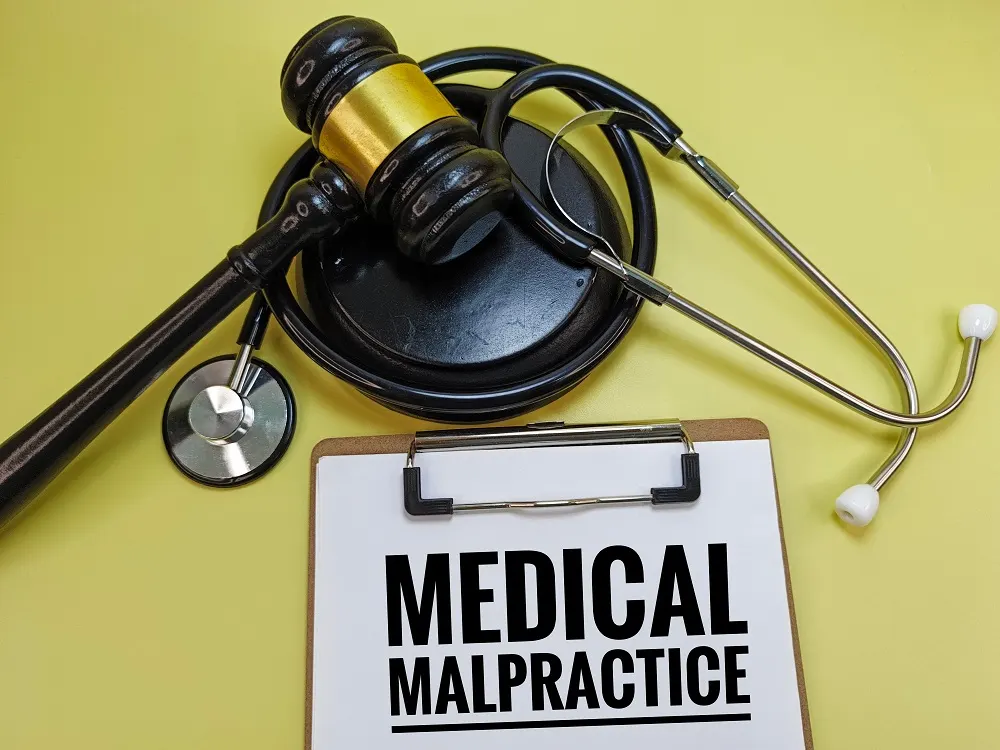How Our Hospital Infection Lawyers in New York Can Help
At Jacob D. Fuchsberg Law Firm, our hospital infection attorneys combine four decades of medical malpractice success with a deep command of the infection control standards and healthcare protocols. We understand that hospital-acquired infections often result from systemic failures in patient safety, and we know how to prove it.

Our approach includes:
- Analyzing hospital surveillance data and infection control records.
- Working with epidemiologists and infection prevention specialists.
- Reviewing environmental cleaning protocols and compliance documentation.
- Examining staff training records and adherence to safety standards.
- Investigating device maintenance and sterilization procedures.
- Documenting the full scope of medical expenses and life impact.
- Pursuing maximum compensation through strategic litigation.
We approach every hospital infection case with meticulous preparation, knowing that healthcare institutions will deploy teams of lawyers to minimize their liability. Our thorough case development gives you the advantage you need.
#cta_start
Did Something Happen During or After Your Hospital Stay?
Many families tell us they suspected something went wrong, and often, they're right. If you developed an unexpected infection during or shortly after hospitalization, you may have a valid legal claim. Contact Jacob D. Fuchsberg Law Firm today.
#cta_end
What Are Healthcare-Associated Infections (HAIs)?
Healthcare-associated infections are infections that patients develop while receiving medical treatment in a hospital or healthcare facility. These infections are not present during admission but develop 48 hours or more after hospitalization. In New York hospitals, the state ranks second nationally for C. difficile infections with 2,467 cases, and third for MRSA bloodstream infections with 652 cases.
The most common types of healthcare-associated infections include:
Central Line-Associated Bloodstream Infections (CLABSI)
Central lines are tubes inserted into major blood vessels to deliver medications or monitor patients. CLABSI rates in medical-surgical ICUs average 4.1-6.1 infections per 1,000 catheter-days. These serious infections can lead to sepsis, organ failure, and death when hospitals fail to follow proper insertion and maintenance protocols.
Catheter-Associated Urinary Tract Infections (CAUTI)
CAUTI accounts for approximately 40 percent of all HAIs in U.S. hospitals. These infections occur when urinary catheters are left in place too long, improperly maintained, or inserted without sterile technique.

Surgical Site Infections (SSI)
Surgical site infections develop at the location where surgery was performed. SSI were the second most common overall adverse event in hospitalized patients. These infections can affect the skin, tissues, organs, or surgical implants.
Ventilator-Associated Pneumonia (VAP)
VAP occurs in patients on mechanical ventilators when bacteria enter the lungs through contaminated breathing equipment or poor oral care practices. This severe lung infection significantly compromises a patient's health and can lead to serious complications, extended recovery, and increased mortality risk.
Methicillin-Resistant Staphylococcus Aureus (MRSA)
MRSA infection is one of the leading causes of hospital-acquired infections and is commonly associated with significant morbidity, mortality, length of stay, and cost burden. MRSA bacteria are resistant to many antibiotics, making these infections particularly dangerous.

Clostridioides difficile (C. diff)
C. difficile is now responsible for more than 12% of all HAIs. This bacterial infection causes severe diarrhea and colitis, often occurring after antibiotic treatment disrupts normal gut bacteria.
When Hospital Infections Become Medical Malpractice
Not every hospital infection constitutes medical malpractice. However, 65-70% of CLABSI and CAUTI, and 55% of VAP and SSI may be preventable with infection prevention strategies. When healthcare providers fail to follow established infection control protocols, they may be liable for resulting harm.
Common causes of preventable hospital infections include:
- Failure to properly sterilize medical equipment
- Poor hand hygiene practices among staff
- Inadequate environmental cleaning and disinfection
- Improper insertion or maintenance of medical devices
- Failure to isolate infected patients
- Ignoring infection prevention protocols
- Understaffing leading to compromised care
- Using contaminated or expired medical supplies
- Failure to monitor patients for signs of infection
- Delayed diagnosis and treatment of infections
#cta_start
Are You Facing Massive Medical Bills from a Hospital Infection?
You shouldn't have to pay for a hospital's negligence. We'll fight for every dollar your family needs to recover and move forward. Reach out now for a free case evaluation.
#cta_end
Types of Hospital Infection Cases We Handle
Our firm represents patients who suffered the following consequences due to negligent infection control:
Life-Threatening Bloodstream Infections
- Sepsis and septic shock
- MRSA bloodstream infections
- CLABSI complications
- Multi-organ failure
- Endocarditis (heart valve infection)
Severe Gastrointestinal Infections
- C. difficile colitis
- Toxic megacolon
- Bowel perforation requiring surgery
- Chronic digestive complications
Serious Surgical Complications
- Deep surgical site infections
- Necrotizing fasciitis
- Implant-related infections
- Wound dehiscence and delayed healing
- Additional surgeries to control infection
Drug-Resistant Infections
- Carbapenem-resistant Enterobacteriaceae (CRE)
- Vancomycin-resistant Enterococcus (VRE)
- Extended-spectrum beta-lactamase (ESBL) infections
- Multidrug-resistant organisms requiring prolonged treatment
Respiratory Infections
- Ventilator-associated pneumonia
- Healthcare-associated pneumonia
- Lung abscesses
- Respiratory failure
Many of these infections require extended hospitalization, multiple surgeries, and lifelong medical care. Some result in permanent disability or wrongful death. Our hospital infection attorneys are here to help families recover the compensation they deserve.

How We Prove Hospital Infection Medical Malpractice
Proving medical malpractice in hospital infection cases requires establishing four key elements:
- Duty of care: The hospital and its staff had a professional obligation to follow infection prevention standards.
- Breach of standard: The healthcare provider failed to meet accepted infection control protocols.
- Causation: The negligent practices directly caused your healthcare-associated infection.
- Damages: You suffered measurable harm — physical, emotional, and financial — due to the infection.
Our hospital infection lawyers work with recognized infectious disease physicians, infection control professionals, and hospital administration specialists to build compelling cases. We thoroughly analyze:
- Hospital policies and procedures
- Staff training records
- Environmental cleaning logs
- Equipment sterilization documentation
- Patient isolation protocols
- Antibiotic stewardship practices
- Surveillance data and infection rates
What Compensation Can You Recover After a Hospital Infection?
When a hospital infection is caused by medical negligence, a lawsuit can help your family recover comprehensive compensation for both the immediate and long-term consequences. Depending on the severity of the infection and its impact on your life, you may be entitled to:
- Medical expenses: All past and future healthcare costs, including extended hospital stays, surgeries, medications, wound care, and rehabilitation.
- Lost income: Compensation for wages lost during recovery and reduced earning capacity if the infection causes permanent limitations.
- Home healthcare: Costs for skilled nursing, home health aides, and specialized medical equipment.
- Pain and suffering: Compensation for physical pain, emotional distress, anxiety, depression, and diminished quality of life.
- Additional surgeries: Costs for corrective procedures needed to address infection complications.
- Long-term care: If permanent disability results from the infection, coverage for ongoing medical needs and assistance.
- Wrongful death damages: When hospital infections prove fatal, covering funeral costs, loss of companionship, and future financial support.
Your family deserves accountability and relief. Our experienced hospital infection attorneys in New York will fight to secure the maximum compensation available under New York law.

Why Families Trust Jacob D. Fuchsberg Law Firm
When a hospital's negligence leads to a life-altering infection, you need attorneys who can match medical institutions' resources with superior legal strategy. At Jacob D. Fuchsberg Law Firm, we've built our reputation on taking on New York's largest healthcare systems and winning substantial recoveries for infection victims.

.svg)


- Proven success in hospital infection cases: Our track record includes significant victories against major New York hospitals for preventable healthcare-associated infections.
- Four decades of medical malpractice focus: Since our founding, we've concentrated exclusively on medical negligence cases, developing unmatched insight into hospital liability and infection prevention failures.
- Contingency fee structure: You pay no attorney fees unless we secure compensation for your hospital infection case, allowing you to pursue justice without financial risk.
- Bilingual legal representation: Our Spanish-speaking attorneys ensure clear communication throughout your case, serving families across New York's diverse communities.

.svg)


.svg)
.svg)















.svg)
.svg)

.svg)
.svg)




.avif)



